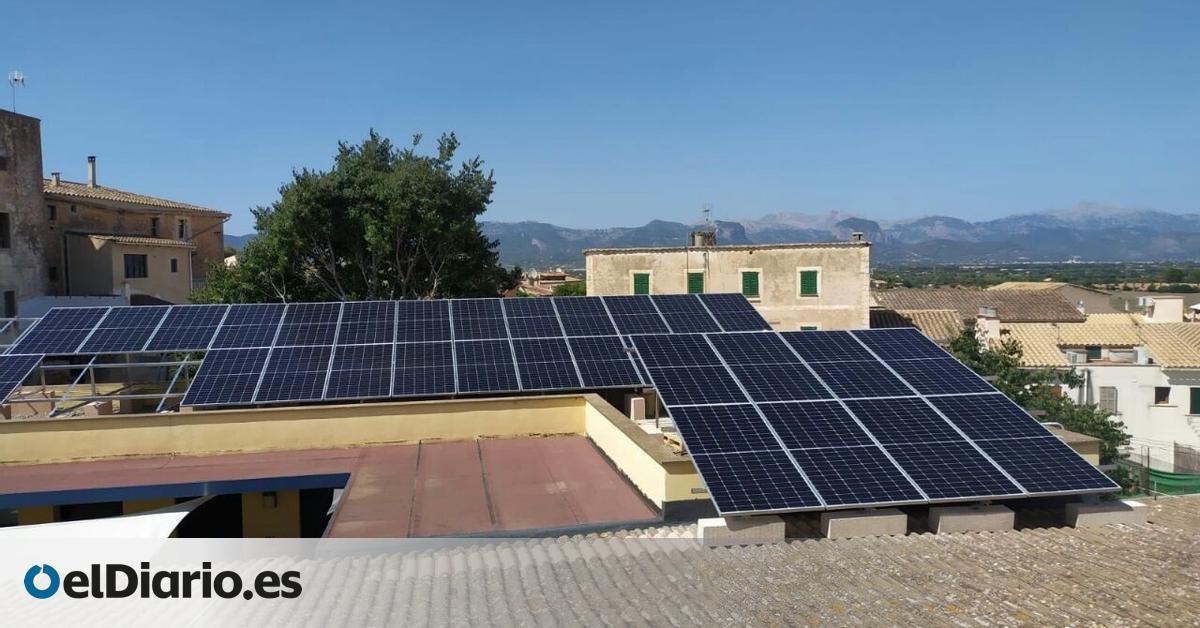
Reversal of the autonomous communities of the PP that were boycotting the arrival of millionaire funds for self-consumption to their own regions, arguing that the aid distribution system is too complex.
Finally, all regions are going to ask for that extra money from the Recovery Plan, endowed in total with 500 million euros, of which more than 300 million corresponded to the communities governed by the popular ones.
This was confirmed this Friday, in a telematic work meeting between the Ministry for the Ecological Transition, attended by the third vice president and minister, Teresa Ribera, and the autonomous communities, to discuss aspects of the distribution of funds and the addendum to the Recovery Plan.
At the meeting the issue of self-consumption was discussed and, as elDiario.es has learned, all the autonomous communities will finally request the expansion of the funds included in the addendum, the aforementioned 500 million, if they have not already done so, after some, like Castilla y León, announced that they were not going to request these funds and said that they refused to process them “due to their complexity.”
Sources from the ministry highlight “the good collaboration and commitment to ensure that aid reaches citizens as soon as possible, implementing improvements based on the experience accumulated over the years and meeting the demands of the European Commission and the Treasury.”
As elDiario.es reported on December 4, the vast majority of the regions governed by the Popular Party, which receive more than 300 million in aid for self-consumption for families and companies, had missed the deadline initially granted to request those funds. extra, on November 15, while other regions had already requested that money.
Instead, that day all the autonomous energy councilors of the PP sent a letter to the director of the Institute for Energy Diversification and Savings (IDAE), Joan Groizard, asking for last-minute changes in the management of these funds, simplifying procedures. so that the money reaches the beneficiaries as soon as possible.”
Letter to which Groizard later responded with another letter in which, as this media reported, he called on them to request the funds before December 8. Finally, that period is going to be extended, ministry sources explain.
In that letter, among other things, the senior ministry official reminded the regions that “since their approval in 2021, the aid programs give freedom to the autonomous communities to apply the administrative simplification measures that they consider necessary.”
These “can simplify, replace or eliminate the documentation required of beneficiaries and establish alternative procedures and/or electronic means that allow verification of the necessary details.”
Groizard also reminded them that from January 2021, the management expenses related to these aid programs can be charged to the budgets transferred to the Autonomous Communities, to reinforce computer equipment and systems for the management of the funds. This amount was 3.5% of the funds transferred at the beginning of the program and was raised to 5% at the beginning of 2023.
Groizard also told them that the possibility of reinforcing teams and resources, and making management more flexible “has made it easier for some communities to have already resolved practically the entire available budget, according to the information they have been sending.”
If the regions governed by the PP had not requested their share of those 500 million, the unrequested funds would have been prorated among the rest of the regions. Finally, the threat of the popular has remained a bluff.
The threat of blockade has occurred in a complex context for self-consumption. After the boom of 2022, installation in the domestic segment is plummeting due to the drop in electricity prices, the rise in interest rates and the “perception” that aid is not arriving, as the sectoral employers’ association said in September. UNEF, as a consequence of the slowness in processing them (in some communities it takes more than a year to collect them).
Added to this are the delays in the legalization of the facilities, which the OCU has attributed to “obstacles by the distributors and the Administration itself.” There is even an open investigation by the National Markets and Competition Commission (CNMC) that affects Endesa.
Source: www.eldiario.es

